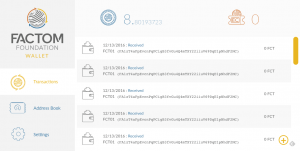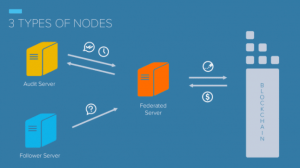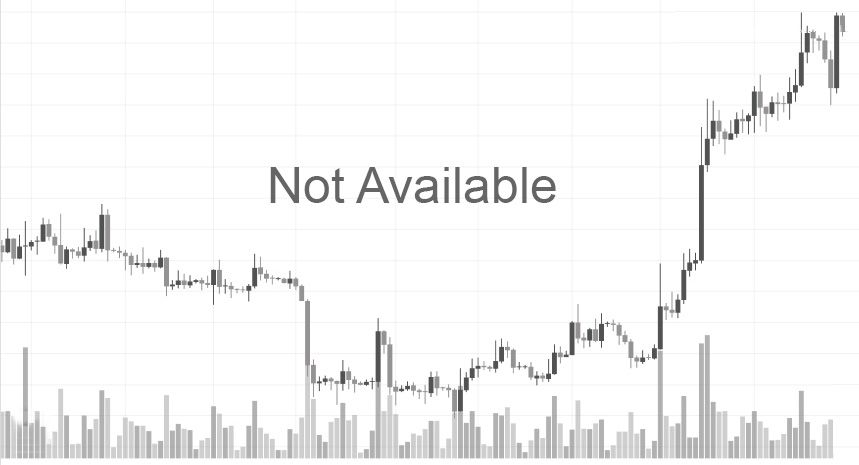In development since 2014, the Factom platform has since grown into a blockchain solution and a cryptocurrency (FCT) with two functional tokens, all of them focused on improving the quality of storage and protection of data in business applications.

The Factom platform was devised as a blockchain-based solution to the issues the organizations face when creating records and storing them in the databases which often involve working with the paper-based documentation. Seeing the blockchain immutability as one of the defining characteristics of this technology, the Factom developers presented their platform as a technological answer to some of the key issues in contemporary data management practices:
- Factom platform recognizes the role of the audit trail in fostering trust among stakeholders and wants to improve it. Verification and auditing of the records created in business processes can be time consuming, inaccurate and vulnerable to failure. This stems from the inherent lack of trust in business dealings, prompting the companies to devote huge resources to perfecting record keeping and audit trail management. Factom promises to streamline this procedure by using a blockchain-based audit trail which is immutable, easy to verify and fast. Vital documentation, such as that relating to land deeds or medical records is often distributed between various parties and protection of their integrity is essential for many businesses to which the Factom offers its technology.
- Records of all types can be notoriously hard to protect or synchronize, prompting the Factom team to offer blockchain architecture as a rock-solid platform for data storage. Business data from various sources are often fragmented and distributed across countless systems which function independently. The fact that these records are vulnerable to tampering and easy changing of its content (particularly the computer-based data) is yet another obstacle to making the data both resistant to manipulation and easy for synchronization. At the same time, keeping paper records is both expensive and demanding in terms of the storage footprint. As an answer to this issue, the Factom developers offer the platform which comes with a distributed mechanism for locking data from various sources and making it resistant to tampering.
- Factom team wants its platform to improve what it describes as insufficient speed offered by the existing blockchain networks. With Bitcoin, for instance, blocks are recorded at roughly ten-minute intervals, meaning that it takes as much time to confirm a single transaction. Since the full processing of transaction takes about six confirmations as a standard, this process can take about an hour at average. As the demands of modern-day business hardly allow for this process taking this long, Factom offers processing transaction in smaller increments and at shorter intervals. Each ten minutes, a record is finalized on the Factom blockchain at the speed the user’s application is “comfortable” with.
- Factom aims to bring down the transaction costs. Prices of cryptocurrencies are notoriously volatile and they can also increase the cost of transactions simultaneously. At the same time, their increased numbers also incur higher costs. Factom offers to adapt to handle a higher number of operations with proportionately lower fees which translate into cost savings. Its system of “Entry Credits” has a fixed cost which does not depend on the token price fluctuations.
- Factom wants to reduce bloating and limited transaction throughput on the blockchain. The “traffic” on the blockchain gets congested with the increasing number of applications that require storing information on it. With this, there comes a problem with the introduction of increased block sizes and concerns regarding the maintenance of decentralization. Instead of burdening blockchain with the increasing number of transactions which cause the bloat in the first place, the Factom system involves recording entries within their own dedicated structures or chains.
How Does Factom Approach Data Storage with Blockchain?
Factom’s peer-to-peer network is built upon secure and decentralized blockchain named Factom Chain. The technology is offered as part of the series of Factom products, one of which includes the Blockchain-as-a-Service platform named Factom Harmony. With it, the users can integrate Factom technology with their existing business system and applications via API calls, without having cryptocurrency infrastructure or technical expertise.
The Chain’s task to serve as the platform for the recording and maintenance of data obliges it to focus on privacy and immutability of those records. This level of protection is achieved by means of separation of the blockchain’s immutability concept from the cryptocurrency aspect it was originally designed to work with. Since Bitcoin’s blockchain, for example, was originally designed to support monetary transactions, the Factom team took from it only what worked best for the data storage segment (immutability and security), without wanting to force its clients to deal with its cryptocurrency aspect.
To achieve this separation, Factom has established its own autonomous distributed protocol which aims to be used for the data entries which prioritize long-term storage without the ability to be erased easily:
- Financial records, documents on investments and transactions
- Documentation on real estate and mortgage, land deeds, home sale contracts etc.
- Medical records and the records relating to citizenship, identity and credit records.
Notwithstanding these target groups, Factom’s architecture aims to present itself as a solution for any business which considers its centralized databases both insufficiently secure and private.
What Are the FCT Tokens?
Relieving the Factom blockchain of the cryptocurrency “burden” does not mean that its network is not utilizing tokens as a means of running its system. These tokens are:
- Factoids
- Entry Credits
Factoids (FCT) are tokens that within the Factom ecosystem and are available for trade like the “standard” cryptocurrency tokens. Factoids perform three main roles on the Factom network:
- They serve as a shield against spamming and bloating of the platform by the users and promote decentralization at the same time
- Factoids are used to enforce consensus by stimulating users to support the Factom protocol. Lack of consensus means that the tokens will start losing their value
- They are also a key component in the reward-based system that exists to ensure basic functionality of the network
The Factom network releases 73,000 FCT tokes on monthly basis at a fixed rate, irrespective of the market price they may have. These tokens serve as the incentive for the servers that run the Factom protocol, as well as the “fuel” which allows them to make data entries on the platform. Making entries on the platform must be validated as a transaction involving Factoids, and the failure to do so will result in Factom servers rejecting the entry in question.
As of December 2018, the FCT market cap stood at USD 71 million, while the total supply of the tokens is capped at 8,745,102 FCT. The tokens are available for trade on cryptocurrency exchanges such as Poloniex and Bittrex. Once acquired, the tokens can be stored in the official Enterprise wallet, while the support for other solutions is underway.

What is the Factom’s Entry Credit System?
Another key component of the Factom platform are its Entry Credit (EC) tokens which are available for purchase with the FTC via the Factom protocol. These tokens cannot be transferred to other public keys and their purpose is limited to the following:
- Paying for entries on the Factom network and preventing the data spam
- Voting for the authority nodes.
Regarding their primary role, the EC tokens need to be spent to actually be able to add data to the blockchain, with 1 Entry Credit allowing one to enter 1KB of data. Buying EC tokens with Factoids means that the FCT are removed from the Factom system, i.e. they are said to be “burned”. While Factoid tokens can be converted into Entry Credits, the reverse is not possible. Entry Credits are hardly usable apart from their function on the Factom network, meaning that users do not have to fear that they would be stolen from any environment they are stored in.
Factom allegedly wants to make its platform as accessible as possible. This means that storing data on it should be made possible even for the users who do not want to bother with learning the intricacies of the interplay between the Entry Credits and Factoid tokens. These users are presented with an option to purchase Entry Credits with any supported currency they prefer, provided that they have a public key for holding them. What the Factom system does in the background in this case is that it will simply buy FCT tokens from the available crypto market and burn them to ensure that the purchase is “covered”.
How Does Factom Manage Audit Trail?
Since making data-based entries in a secure and immutable environment is one of main selling points of Factom, easy management of audit trails is one of the key features of its design. The users order entries to be made and the Chain makes a record of them in form of an audit trail.
This is done by the system providing each processed entry with a chain ID. The ID serves as a cryptographic proof by which the system identifies the group which an entry belongs to, with the sequence of entries forming a single chain. What this chain does is to make note of the order in which the entries were made, thus creating an audit trail. Created chains can be thought of as folders, while the entries made with them can be imagined as files which are put into them. Each entry can have the maximum size of 10KB, with the possibility of making as many of them to handle large files.
Factom’s Block-Based System
Factom platform features yet another organizational perk which ensures streamlined management of data entries – its block-based system which consists of:
- Entry blocks
- Directory blocks
One of the key advantages of this system is its reduced bandwidth demand for the purpose of auditing the recorded data. This system allows Factom to eliminate the need for going over the whole of blockchain history in order to validate a single transaction.
It all starts with a hash function which handles the encryption of data (documents, video, audio etc.) needed for the validation of processes taking place on the blockchain. Combined letters and numbers which are encrypted to be different from the original data are called hash and these play a role in the formation of the so-called entry blocks on the Factom chain.
Entry blocks are formed by the group of hashes involving all entries with a specific chain ID. These blocks feature only hashes and not concrete data which is made part of these entries. Closely related to them are directory blocks, which are created by the servers on a minute-by-minute basis. This process involves making groups consisting of entry block hashes created in a single minute. After ten directory blocks have been created within a 10-minute time span, the hashes contained in them are linked to the blockchain. This task is done by the so-called authority nodes which are selected randomly.
What is the Consensus Model on the Factom Chain?
Technical foundation of the Factom’s consensus system consists of the algorithm which resembles the Raft, paired with three types of servers on the network:
- Federated servers
- Follower servers
- Audit servers
Factom’s consensus system involves random selection of a “leader” among the federated servers which represent the core the Factom network runs on. Federated servers perform two main tasks:
- Writing data to the blockchain
- Receiving rewards in form of Factoid tokens
Federated servers need to confirm their existence and operational state to the follower servers in the network. In case their “signal” is missing, the follower servers can start the process of electing a new federated server to replace a non-existent one. In addition to this, the follower servers forward the requests for entries to be anchored on the Factom blockchain to the federated servers.
Audit servers keep tabs on what the federated servers do. Federated server making a mistake is turned into an audit server, while an audit server gets promoted to a federated one. The Factom platform will not handle the auditing process for the initial entries, which is the task of each user prior to making them part of the system.

Factom Team and History
The Factom project started with the establishment of the Factom Inc., a Texas-based company dedicated to the innovations in the blockchain technology back in 2014. The initial version of the Factom platform was released in early 2015, followed by the token sale.
The key personnel behind the project includes the company’s founder and CEO Paul Snow who, assisted by his team, also led the development of the Factom architecture.
Operating in the niche without much competition, apart from the NEM’s Apostille solution, Factom managed to enter into several business partnerships with the users of its technology, such as the US Department of Homeland Security, the Gates Foundation,Altisource’s Equator platform, Yooya and others.
